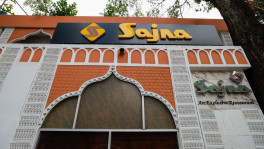Critical Covid-19 patients least likely to receive treatment
Half of the initial six public hospitals designated for novel coronavirus treatment in the country do not have facilities to provide intensive care

Around 10 percent of the Covid-19 patients require critical care, but the healthcare system in Bangladesh seems to be eluding most of them.
Coronavirus healthcare is now largely focused on isolation, but those who most need the treatment to survive the disease are less likely to get medical support.
The global perception is that about 90 percent of the infected will recover through treatment for symptoms such as fever, cough and dehydration.
However, the remaining patients – who suffer from respiratory distress alongside fever and other manifestations of the Covid-19 – require critical care.
Half of the initial six public hospitals designated for novel coronavirus treatment in the country do not have facilities to provide intensive care. Without this facility, Railway General Hospital, Mohanagar Hospital and Lalkuthi Hospital are nothing but isolation units to prevent community transmission of the virus.
At those facilities, patients will get a bed to lie on, food and medicines – such as paracetamol and antihistamine drugs.
However, if the condition of a patient becomes critical, the individual will have to be shifted elsewhere.
Meanwhile, isolation beds of Kurmitola General Hospital – another dedicated novel coronavirus facility with over 200 patients admitted at present – are on the fringe of saturation, and this is considering the fact that the hospital may have to admit only those with respiratory distress for treatment.
The others will be advised to stay at home, in isolation, and to take medicine.
The hospital recently extended its intensive care unit (ICU) to 22 beds. A patient with respiratory distress is initially fed with a higher concentration of oxygen so that his or her lungs can function.
However, when a patient's health condition becomes more critical, the patient is given high-flow oxygen before being attached to a ventilator that supplies oxygen directly to the lungs.
These procedures are possible in ICUs or high-dependency units, where the oxygen level of a patient's body, the heartbeat, and other physiological parameters are constantly monitored.
"Moreover at this point, different organs may fail, so immediate medical intervention is necessary for the patient's survival," said Sami Al Hasan, assistant professor of surgery at the Kurmitola Hospital.
Shortage of logistics
While the Kurmitola hospital is grappling with an increasing number of patients, one of the three hospitals without an ICU, Railway General Hospital, is not even ready to support stable patients who need separate accommodation and basic treatment.
The facility lacks manpower and logistics. It does not have an x-ray machine to perform imaging tests of a person's lungs so that doctors can determine the gravity of a patient's respiratory problems.
The hospital, with 50 isolation beds, is run by 10 doctors – two of them administrators, 25 nurses – 20 newly-joined, and only 11 staff members – including cleaners.
A doctor, seeking anonymity, said, "The hospital has a 34-year-old, outdated, anesthetic machine in its operating theatre. The health ministry has been informed about what is missing from the facility to provide care for novel coronavirus patients, and the ministry has pledged its support to provide the necessary equipment soon."
In the meantime, the hospital received 30 oxygen cylinders last week. However, employees are angry about the substandard personal protective equipment, masks and gloves they have to work with.
"We said we need ventilators, but the authority told us that it is currently not possible to get them," said the doctor.
Additionally, one of the senior doctors said the hospital has been providing treatment only at its external unit. Since it lacks logistics, it has been referring patients to other designated facilities.
Hospital with a non-functioning ICU
Another Covid-19-dedicated hospital – Sheikh Rasel Gastroliver Institute & Hospital – has an ICU, but it is yet to start operating.
The hospital is increasing its ICU capacity from eight beds to 16 beds by Monday, according to the administration. However, the next hurdle is to get manpower that can make the ICU functional.
"We have 70 doctors and 55 nurses, but no one is trained to work in the ICU," an official said.
The hospital has informed the ministry that it needs 36 trained nurses before launching the ICU.
"We are renovating our lab room as well, to set up a PCR machine for testing samples," said the official.
This facility also refers patients with novel coronavirus-like symptoms elsewhere.
These realities play out as the number of infected cases and deaths has shot up, raising the tallies to 2,456 and 91, respectively. On Sunday, the country confirmed seven more deaths from the novel coronavirus and 312 new cases of infection.
After all the unplanned actions, the government, on Thursday, issued a circular saying four more public hospitals – Mugda General Hospital, Shaheed Suhrawardy Medical College and Hospital, Shaheed Tajuddin Ahmad Medical College Hospital, and the Sheikh Hasina National Burn and Plastic Surgery Institute – will join the fight to treat Covid-19 patients.
These hospitals are better-equipped with ICU facilities and have trained and experienced manpower. In the circular, the health ministry asked these facilities to transfer all their patients to the Dhaka Medical College Hospital.
"The specialized hospitals should be treating the 10 percent of patients who need intensive care," said Prof Ridwanur Rahman, former head of the medicine department at the Shaheed Suhrawardy Medical College and Hospital.
"The testing facility is still limited and the results do not reflect the overall scenario of novel coronavirus infection in the country," he said, adding that the number of patients needing intensive care will increase in the days to come.
"The 192 ICU beds, countrywide, will be exhausted in no-time, and once a patient is admitted there, it takes seven to 10 days before a patient recovers fully, and only then can ICU equipment be removed from the individual," Ridwanur said.
Isolation units can be set up even in field hospitals. In the socio-economic reality of the country, institutional isolation of patients' is necessary for containing transmission in the community.


 Keep updated, follow The Business Standard's Google news channel
Keep updated, follow The Business Standard's Google news channel
















